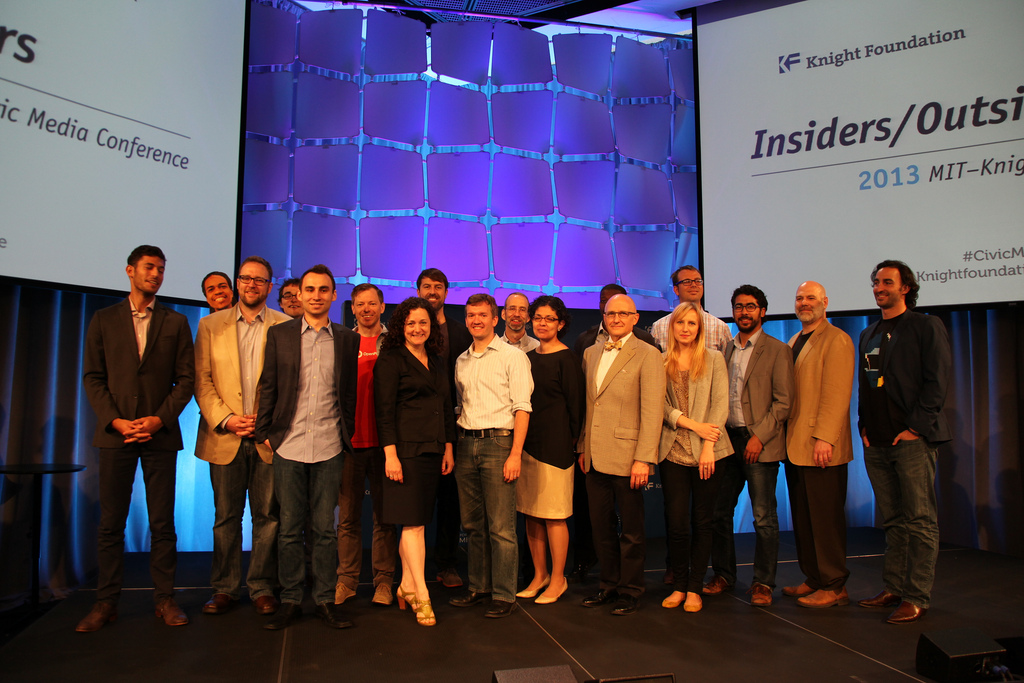
@michaelmaness: Insights from #civicmedia
Above: News Challenge: Open Gov winners.
This week’s MIT-Knight Civic Media Conference focused on strategies that individuals inside and outside government can use to expand civic engagement. But by the end of three days, many of the media innovators gathered in Cambridge, Mass., concluded that the insider/outsider dichotomy might itself be a barrier to engagement.
Eliminating that distinction may actually be helpful, said Michael Maness, Knight Foundation’s vice president of journalism and media innovation, in his closing remarks on Tuesday afternoon: “Maybe there’s a notion of fluidity between them…and at different stages of civic engagement you’re going to inevitably move from one end of the spectrum to the other.”
Maness also shared an important lesson learned from running the News Challenge on Open Gov: Tech alone will not solve the problems born from outdated government systems. The eight challenge winners, which received a combined $3.2 million, know that while tech is necessary, he said, it is not sufficient to influence the cultural and structural changes necessary to encourage more innovation at the local, state and federal level. Rather tech needs to be part of the spectrum of work and combined with effective leadership and open dialogue to help affect change, he said.
Maness summed up some of the other insights from the conference. They included:
- The death of the Internet utopia: There’s a feeling we’ve reached a “wolf-at-the-door moment online,” Maness said. “The Internet we’ve grown up with is in danger.” He added that many believe it’s being taken over by big data, corporations and more. Since we are close to finding ourselves in a digital space we’re not familiar with or necessarily happy about, he said, those who care about the future of the Internet need to be cognizant about what’s happening in the space and to be vocal when they fear their privacy is being breached.
- The politics of invisibility: A tension exists between making sure individuals, groups and organizations are visible and able to participate on the Internet, but can also be invisible when they want to be. At the very least, Maness said, individuals need to have access to the information that is being collected about their digital footprints.
-
Gaps and spaces: Huge gaps exist online, particularly when it comes to maintaining free and open public commons. For example, Wikipedia is one of the only sites in the top 100 most visited that is non
–commercial. Maness urged participants to have further conversations around how we can help build, shape and define more of these kinds of spaces. - The end of the public: You simply can’t build tools and apps for everyone anymore; it’s just not feasible, Maness said. “The Internet has made it so that the notion of a universal whole is almost meaningless,” he said. Rather, he advised that we should be aware that when we refer to “citizens” or “the public,” we’re actually talking about distinct communities.
Maness also announced that the theme of the next News Challenge is health. It will launch in August with an inspirational phase. Stay tuned to @knightfdn and #newschallenge for more updates.
By Elizabeth R. Miller, communications associate at Knight Foundation
The MIT-Knight Civic Media conference was held June 22-24. Whether you joined us on the inside of MIT as a speaker or participant, or on the outside via livestream or Twitter, we thank everyone for their participation in this year’s conference.